|
On Saturday, July 6, the Abiquiú Inn is hosting a Summer Lovin’ Pawty and Adoption Event. In conjunction with Española Humane, adoptable and adorable cats and dogs will happily frolic around the premises of the Inn, waiting for the purrfect human to take them home and love them forever. When I moved to Abiquiú in 2000, Española Humane didn’t exist. Instead, there was a rather bedraggled-looking shelter with limited resources and minimal capacities. I don’t remember when this turned into Española Humane, but I’ve followed their development over the years and I’m constantly impressed by everything they’ve accomplished. Carol Ho, Española Humane’s Clinic Director, lives in Abiquiú. I asked her to meet and chat with me, and she kindly agreed to an interview. Along came Sookie, a three-legged, delightful dog who had to have one hind leg amputated and one eye removed after she was hit by a car and nobody helped her. When somebody finally discovered her and the puppies she had given birth to in the meantime, the leg was so badly injured that It couldn’t be saved. She is up for adoption now; Carol had fostered her, and Sookie has adjusted perfectly. Fostering is an important part of Española Humane’s work and we’ll get back to this later. First, something about the Clinic Director: Carol grew up in Albuquerque and worked as a public school teacher for a while. And then her life completely changed: she met and later married a man who was employed at Intel’s Rio Rancho facilities, a company that produces digital technologies. Her husband’s job took them across the United States and all over the world; they lived in Oregon, Texas, and Arizona, but also in Ireland and Malaysia. Carol’s son, Brendan, was born in Dublin. He’s 31 years old now and a professor of architecture at Kent State in Ohio. Her daughter, who is 29 and was born in Phoenix, Arizona, lives in Baltimore Maryland, does sculpture, and works as the bar manager at a beautiful hotel. Both love to travel, Carol told me; they enjoy the experience of getting to know how other parts of the world live together and work together. About eight years ago Carol and her husband decided to move back to New Mexico. Chance or fate took her to Abiquiú and she instantly fell in love with the place. They found a charming house and they settled down. Carol found work at Ghost Ranch and became their Director of Operations. In that capacity she gained enough skills to encourage her to apply for the clinic director position at Española Humane when it opened up, and she was hired. Her parents raised horses, and Carol, always an animal lover, has lived with dogs all her life – a perfect fit. “ The staff at the clinic and at the shelter are both equally great. They work really hard – you couldn't work there if you didn't have some passion for what they do there. The veterinarians work long hours, the staff work long hours, you don't know what's going to come in on any given day”, Carol explained. “Our main focus at the clinic is to work on spay and neuter in the community. Last year, we had just over 6800 spays and neuters at that tiny clinic. This year, we're trying to get over 7000. “ Carol shared some exciting news: “We're right in the middle of fundraising for a brand new clinic. It’s in Espanola, close to Walmart, but just a bit off the beaten track.That clinic will be bigger than our current facility, and it'll have a better capacity to serve the needs of Espanola and of Rio Arriba County. We're in the middle of that right now, and it's looking really good. We're hoping that it will open in 2025”. If you want to learn more and/or get involved – you can have an exam room named after you, for example – please check here. “We plan to keep the clinic on the current site as the spay and neuter clinic for the shelter animals, so the new clinic will be able to serve the medical needs of the community more. In addition, we offer free vaccinations. We do low cost heartworm prevention, so people can come in and get their animal tested. We also offer flea and tick treatment at a lower cost”. I was curious: where does the money for all this generous support come from? “We do our own personal fundraising, we raise our own funds, that's how we're able to provide things for free” Carol told me. “We try to focus on Rio Arriba County, but there's a need outside of our county as well. So we do what we can for the community. Last month, we spayed and neutered 20 animals for Las Vegas, New Mexico; they brought them over in a van. They'll pay a small fee since they're not in our area, but we do our best to accommodate them with pricing that fits their needs”. “Same right now with Ruidoso. After their first fire, several weeks ago, we took in a group of animals, and then this last week, we took in another group, just because their whole shelter was in the path of the fire. We had a couple of really lovely volunteers that went down and helped pick up those animals and bring them back to our shelter. That’s working as a community”. “I think that's why I've appreciated working there. There's so much effort, everybody works so hard. There’s the intake of animals, then help get them healthy and bring them to the clinic. We do everything we can for them before they're up for adoption. We have a great transfer program where we work with other shelters and other states. When we get overwhelmed with intake on the shelter side, they will take some of our animals in. Our team works to transport them to Colorado, Arizona, or other places, and make sure that they're finding homes”. It seems to me that somehow like-minded people, those who really love animals, attract each other and end up working at Española Humane. They, in turn, can rely on a network of trustworthy volunteers and foster parents. It took a lot of work and effort to build up such a community. “There are days where it's not easy because things don't always work the way you thought they were going to work. Some animals that are brought in don't make it. But there's such a strong effort to work together as a team to help bring those animals through. As you get through the day, you realize you just had a hard day, but everybody did their best”. And then there are the heartwarming stories. Carol tells me a recent one that made it into national news: the story of Pancho. “Pancho’s family lives in Espanola. Their house was broken into in the middle of the night. The person had a knife. Pancho went to lunge at the person and he ended up with a deep cut in his neck. The family drove all the way to Albuquerque, because they thought they would find urgent care in the evening, but they couldn't find help. So they drove back and ended up at our shelter early in the morning. We took him in and he had surgery on his neck. He actually crashed on the table. And the vet tech, Dora [Montano], our shelter Clinic Manager, provided CPR, which brought him back. He's doing great now but his story went worldwide because it was such a touching story. Once we got to know Pancho’s family, we discovered that they had adopted him from the shelter eight years ago! So he kind of had a full-circle story. He’s just the sweetest dog. Every time he was in the surgical area, when you told him he was a good boy, his tail would just wag non-stop. He really worked to protect his whole family that night”. Carol mentioned again the fantastic team: “I think it's hard to create a team that works together. That's one of the things that the Humane Society has done in Española: they work really hard to get to know the people in the area: animal control that works to bring the animals in and get them safely off the roads, and the many foster parents who care for them. It really takes a village. It takes a community to work together to make something like this work.That's why I think Española Humane has developed a better and better reputation through the years as a clinic that cares. And that is a tribute to the staff that works there. They're all good people”. Next, I asked Carol more about the event on Saturday: “This will be an adoption event. It'll be held underneath the trees, in the shade. We have a wonderful off site adoption group that works together. It will be a nice way for the Abiquiú community to see some of what we have available for adoption – cats and kittens and puppies and dogs! They've turned it into a special event with a luau theme. Andy Manzanares has been helping with that as well. She's here in the community, helping to organize the event and making sure we've got everything we need and make it a little extra special, with a lot of different things added to it. I think it'll be so much fun. A couple of weeks ago we did a vaccination clinic here in Abiquiú as well, at the Elementary School on a Saturday morning. We had a nice turnout of people that just needed vaccinations for their dogs.” How many animals are you going to bring, I asked? “Well, that’s not easy to say. We have an expected number that they might bring, but those pets can get adopted right before this event happens, because they remain available at the shelter until we bring them up that day. A lot of dogs and cats will be adopted between now and then. But at the same time, a lot of dogs and cats will be brought in. This is kitten season. So we've got lots of kittens that come in. And a lot of times they're under age, they're not old enough to be adopted yet. We have a really wonderful network of foster care families that take in animals. If they're really young kittens, and they need to be bottle fed, we have specific families that are really good at bottle feeding. They'll take those in and help them through that. Barb Tebbel is our foster manager, she does an amazing job of getting animals placed in foster homes until they're available and old enough or healthy enough to be adopted. Our shelter doesn't have a huge capacity, so we can get full really quickly”. Do you also have animal trainers for difficult dogs that need to learn some skills before they can be adopted, I wondered? “We have a behavior team that works on the shelter side and they'll make sure that dogs are checked out to see how they work on a leash, how they walk. And they're also there to exercise the dogs that are at the shelter for a short period of time waiting to be adopted. They'll take them out on one or two walks a day. And this results in a quieter shelter. The dogs don't bark when visitors come in, because they've already been on a walk. And they've had time with people. That's another thing a volunteer can do: they can go sit in a kennel with a dog, and just pet it for a while and give it some treats or some toys to play with. So that's another essential piece of making everything work, making the animals more adaptable to a family that has children or a family that wants an active dog that goes out on long hikes”. “So then we can give potential adopters a little more information about that dog's personality, what it likes and doesn't like. We have a really nice play yard at the shelter, where if you're coming to meet and greet a dog, you can go out there once you've seen it a little bit. And if it's old enough and not a puppy but an adult dog over six months, you can go outside with the dog and spend some time with it. If it's a really young puppy, we're going to keep it off the ground where it is protected, because they're not fully protected from Parvo until they're four months old. So we want to make sure that we're keeping them healthy. Parvo is in its swing right now, so there are lots of puppies that have Parvo, which is a really deadly disease. Until they're fully vaccinated, they're still susceptible to it”, Carol explained. She concludes: “Colin and Bridget have been so generous to offer the Abiquiú Inn as the location for our adoption event – please join us on July 6th from 12 noon to 3 pm!” This is from a past event.
Well, I’m certain the puppies and dogs and cats and kittens who make it to Saturday’s Luau party (or Pawty, to be exact) will be happy and healthy. Please come for the fun, and if you wish for a new four-legged, furry friend, look no further. Open your home to a poor little chap who is yearning for a forever family, and support Española Humane at the same time – a win-win situation! They’re doing so much for the animals in their charge and for the community, and work so hard to make the future of the shelter better and better. With the warmest thanks to Carol Ho for talking to me – I love to interview people who are passionate about their job. Mahalo! All images courtesy of Española Humane.
2 Comments
|
Submit your ideas for local feature articles
Profiles Gardening Recipes Observations Birding Essays Hiking AuthorsYou! Archives
November 2024
Categories
All
|
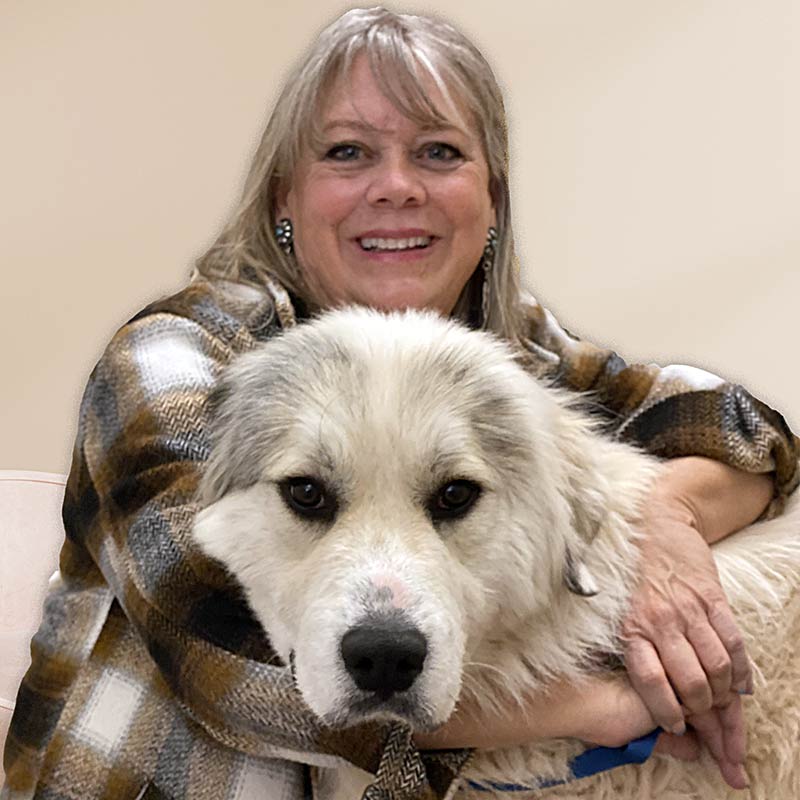
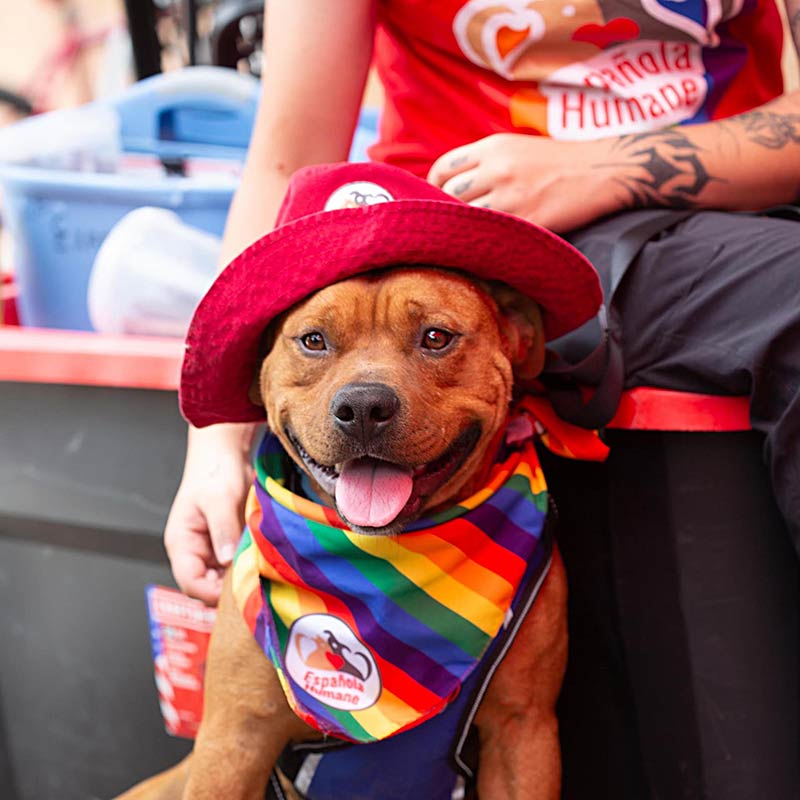
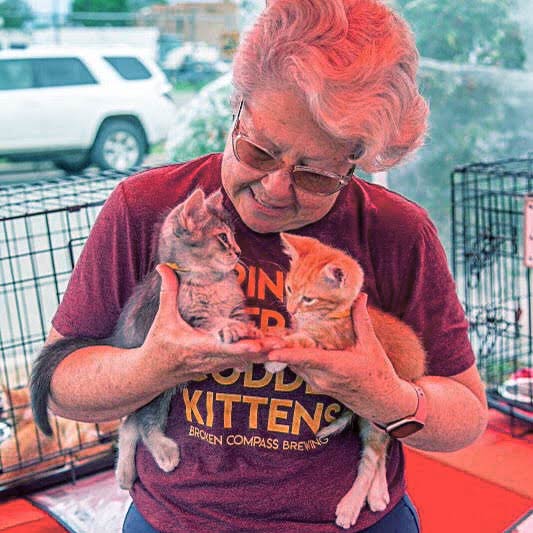
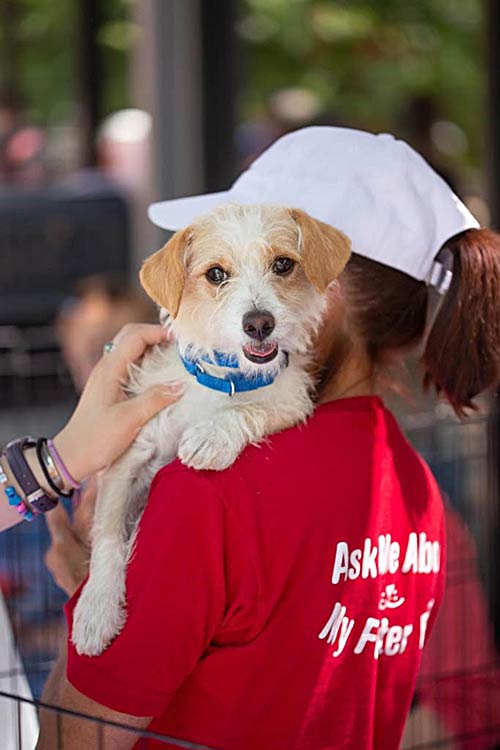
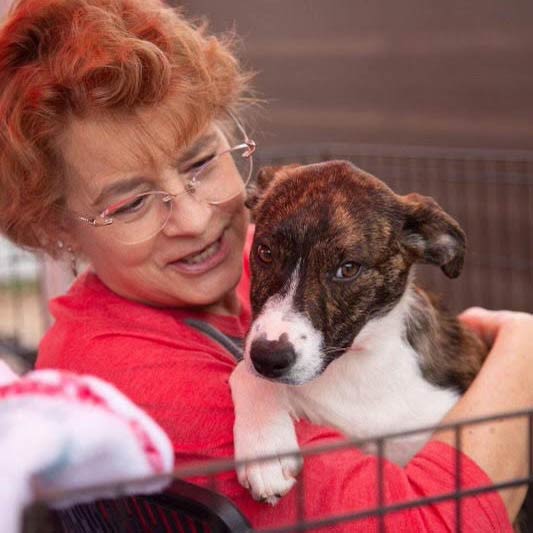
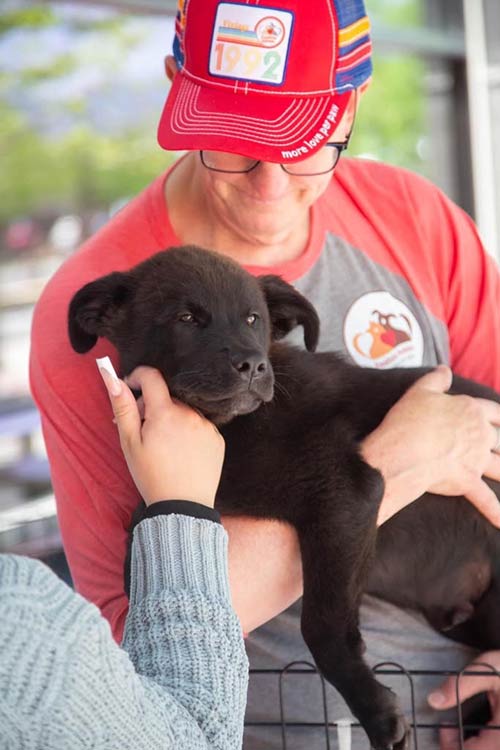
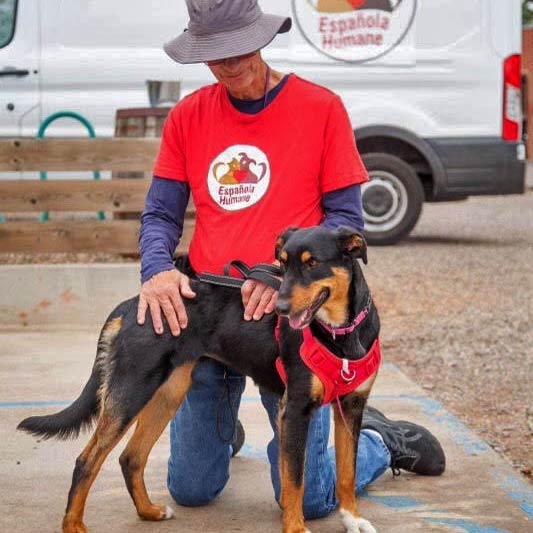
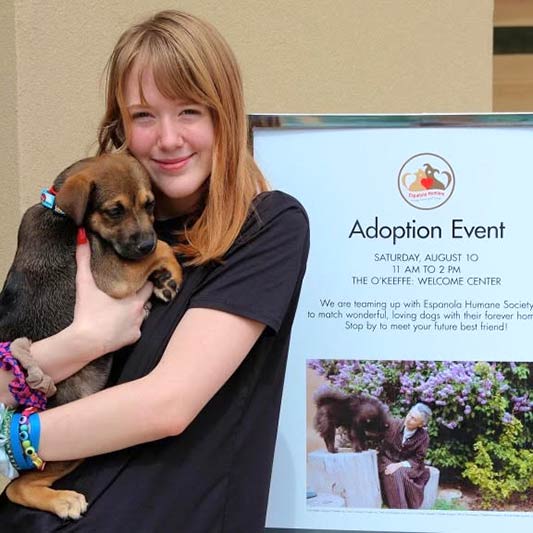
 RSS Feed
RSS Feed